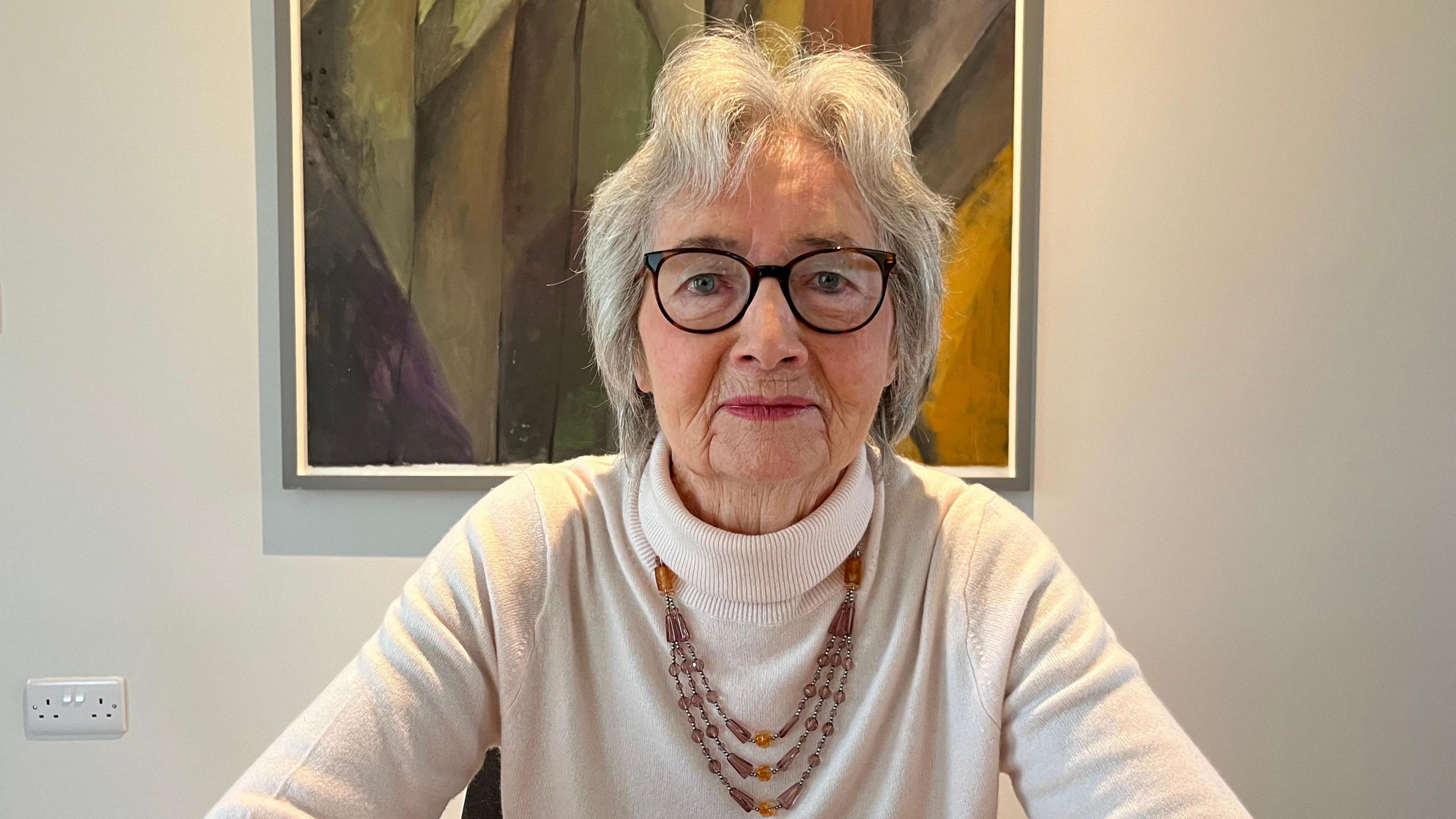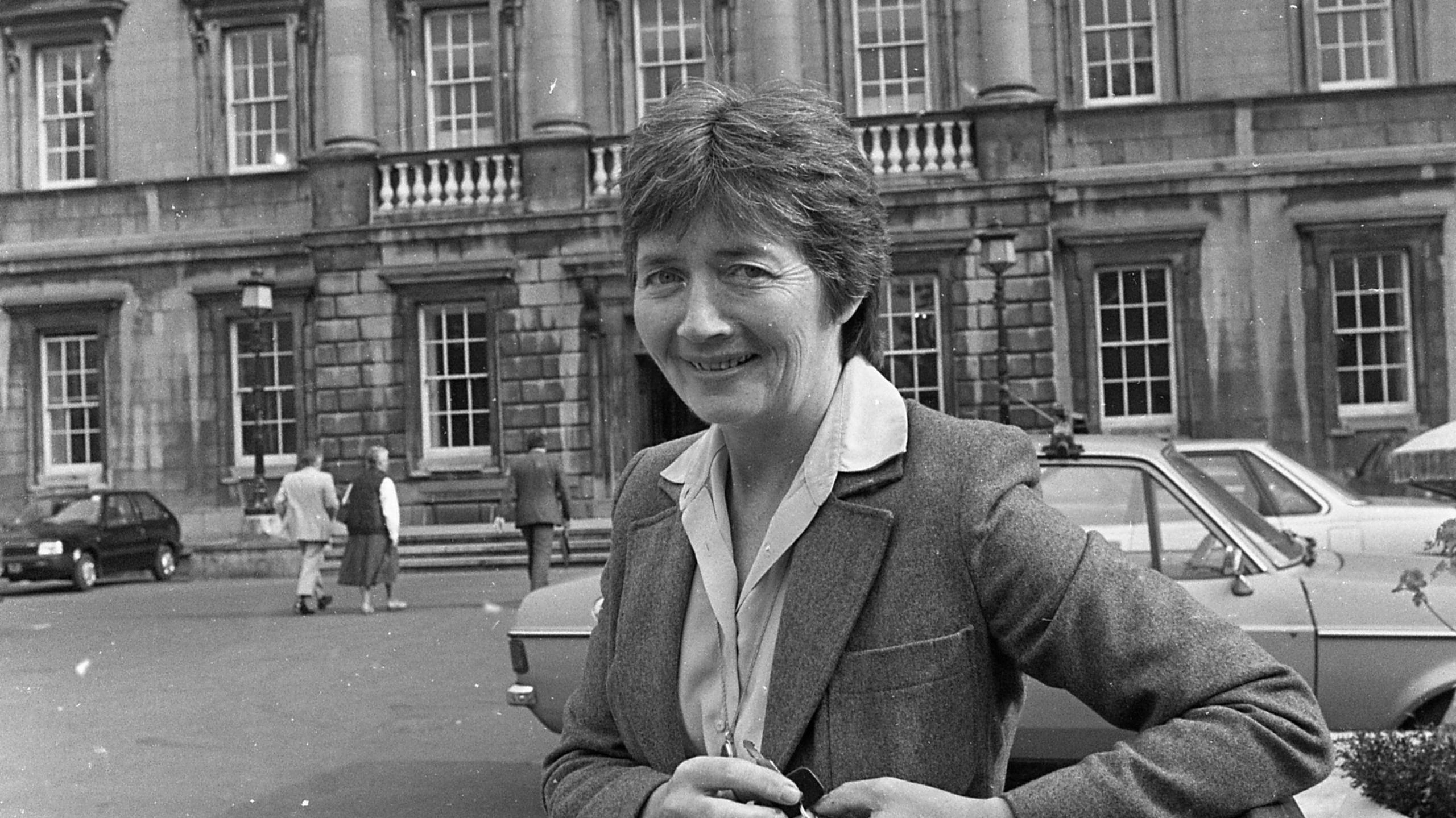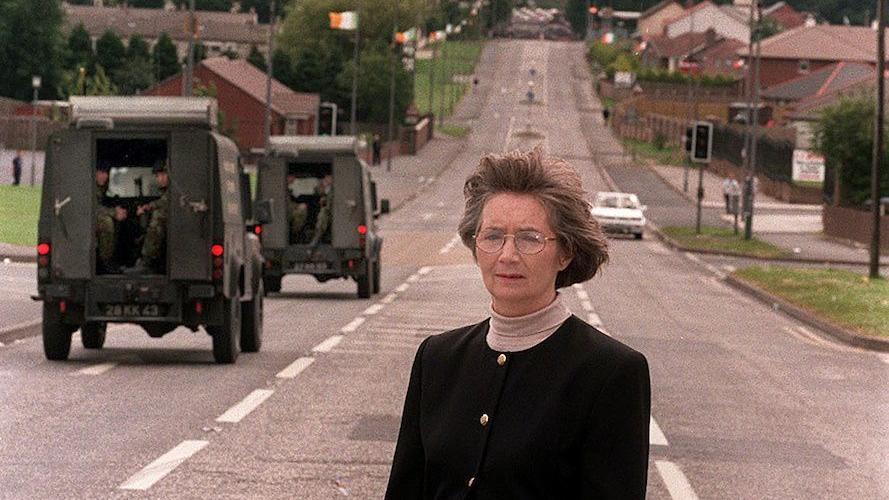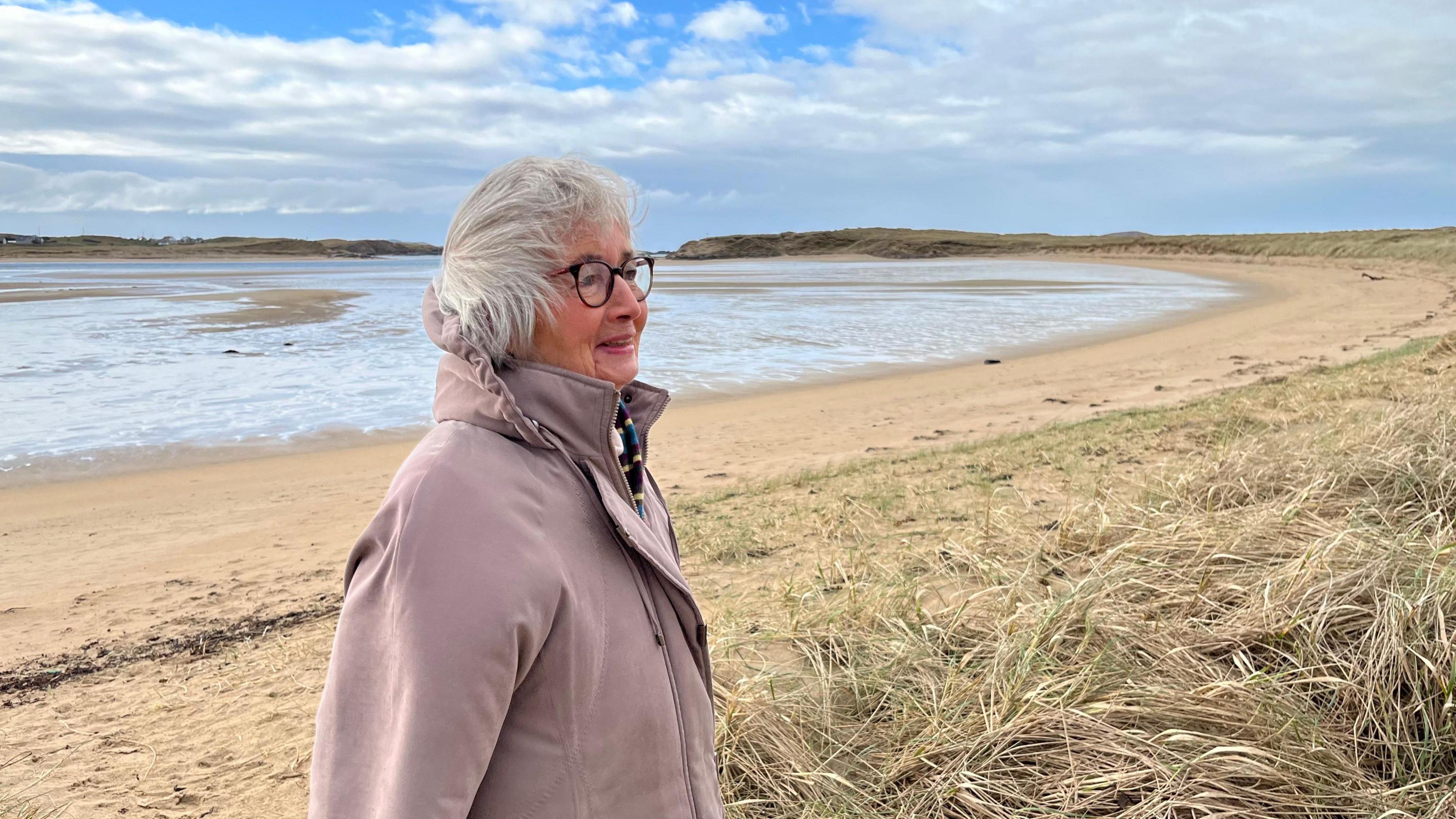SDLP had no plan for life 'after Hume and Mallon'

Former SDLP minister Bríd Rodgers gave an interview to BBC News NI ahead of her 90th birthday on Thursday
- Published
The veteran Social Democratic and Labour Party (SDLP) politician Bríd Rodgers has spoken of her sadness at the sharp decline in support for her party in the 27 years since the Good Friday Agreement peace deal.
The former Stormont minister said the SDLP had been more focussed on trying to achieve peace than planning for what would happen afterwards.
Ahead of her 90th birthday, the great-grandmother looked back on the 1990s when she was a senior member of the SDLP negotiating team alongside leader John Hume and his deputy Seamus Mallon.
On the quest for peace, she told BBC News NI: "I suppose in a way you could say everyone was too busy trying to get there.
"There was no planning for after Hume and Mallon."

Bríd Rodgers served as Stormont's agriculture minister from 1999 to 2002
The SDLP gained more votes than any other party in the first election after the Good Friday deal in 1998.
In the most recent Northern Ireland Assembly election, it was in fifth place, with 100,000 fewer votes than 1998 and not enough seats for a place on the executive.
Rodgers was one of only two women to serve as ministers in the first power-sharing executive set up by the peace agreement.
Speaking in County Donegal, where she now lives, she said the agreement had been the highlight of her political life.
"It's great that we have peace," she said.
"The principles of the agreement were the principles that along with John Hume we had espoused for three decades."
'The only woman in the room'

Bríd Rodgers was an appointed a member of Seanad Éireann (the Irish Senate) during the 1980s
Born in the Republic of Ireland in February 1935, she was a French teacher in Donegal before moving across the border in the 1960s.
Her husband Antoin, also from Donegal, took over a dental practice in Lurgan, County Armagh.
The couple had six children and Rodgers says it was difficult at times to balance politics with family life.
"I wasn't a born politician. I never intended to be in politics. I started through civil rights and working for equality," she said.
"It wasn't easy because I was the only woman in the room most of the time.
"The men would all go off, as they do, after a meeting and they would meet wherever, probably in the pub, and I had to go back [home] because I had children to look after."

Bríd Rodgers and Sinn Féin's Bairbre de Brún were the only women to hold ministerial positions at Stormont when the executive was first formed
Before she got involved in party politics in the 1970s, she remembers contacting John Hume asking him to take action about an issue in Lurgan.
"I wrote a note to John and I said 'this is happening in Lurgan and it's awful the SDLP are doing nothing about it' and he just wrote me back one line: 'What are YOU doing about it?'
"I got the message and I joined the party, and the rest is history I suppose," she said.
Bullet-proof door at home

Bríd Rodgers supported nationalist residents from the Garvaghy Road in Portadown during protests against Orange Order parades marching through the area
In the mid 1990s, at the height of the Drumcree parade protests by unionists in Portadown, she received death threats from loyalist paramilitaries for supporting nationalist residents.
She said the police warned her she was "on the list".
A bullet-proof door was installed at her home.
It made her nervous but at no stage did she consider giving up politics.
"It never occurred to me at that stage because I knew that we had to keep going," she said.
"I was in an area where things were pretty difficult for the nationalist community – how was I going to walk away?"
After the Good Friday Agreement, she became agriculture minister and was widely praised for her handling of a devastating outbreak of foot and mouth disease in 2001.
She stood down from the assembly in 2003 at the age of 68.

Bríd Rodgers moved back to her native County Donegal after her retirement from elected politics
'I never leaked!'
Looking back at the slump in her party's electoral fortunes since the 1990s, she says there were a number of different factors.
"During the whole peace process, bit-by-bit the SDLP were being sidelined, even at times being sidelined by Westminster and Dublin who had talks behind our backs," she said.
"When I think back on it, Sinn Féin always wanted to take over from the SDLP, and that's politics.
"They were the story for quite a number of years, they were never off the media."
Speaking of the media, she was asked about the leaking of the Good Friday Agreement to BBC journalist Stephen Grimason, who was also from Lurgan.
Stephen Grimason was the BBC's political editor at the time of the Good Friday Agreement in 1998.
He was one of the first reporters at Stormont to receive the document and break the news of the deal.
Rodgers replied: "Definitely not me. I was never a leaker. I might have been many things...but I never leaked!"
On Thursday night, her 90th birthday is being marked at a reception at the Guildhall in Londonderry, organised by the John and Pat Hume Foundation.
- Published9 April 2023

- Published8 July 2023

- Published28 February 2013